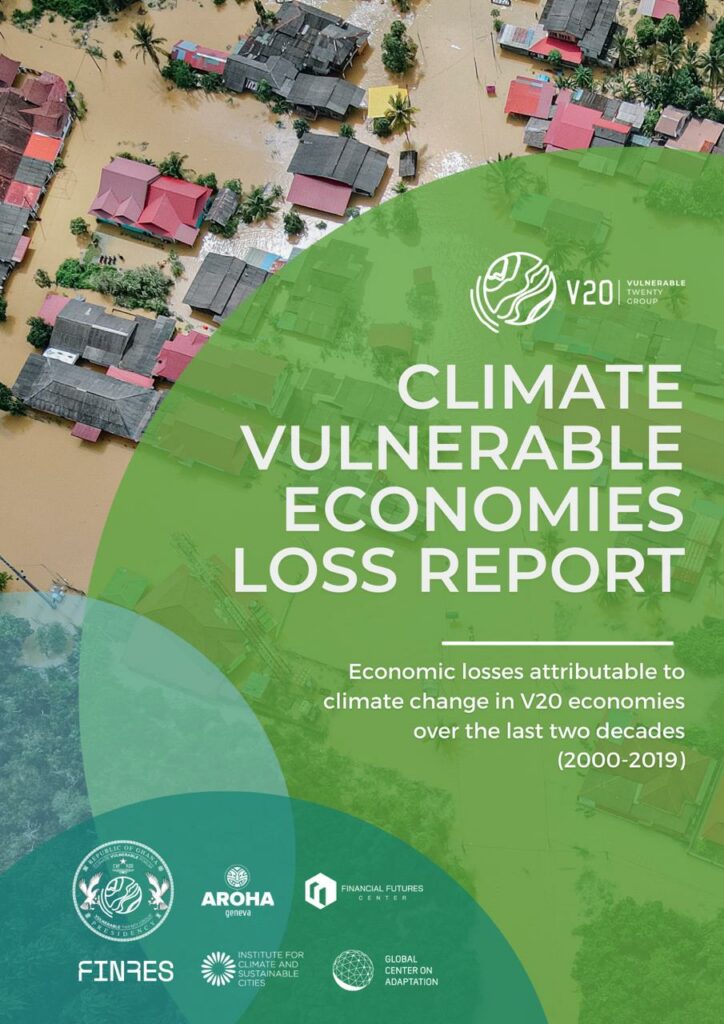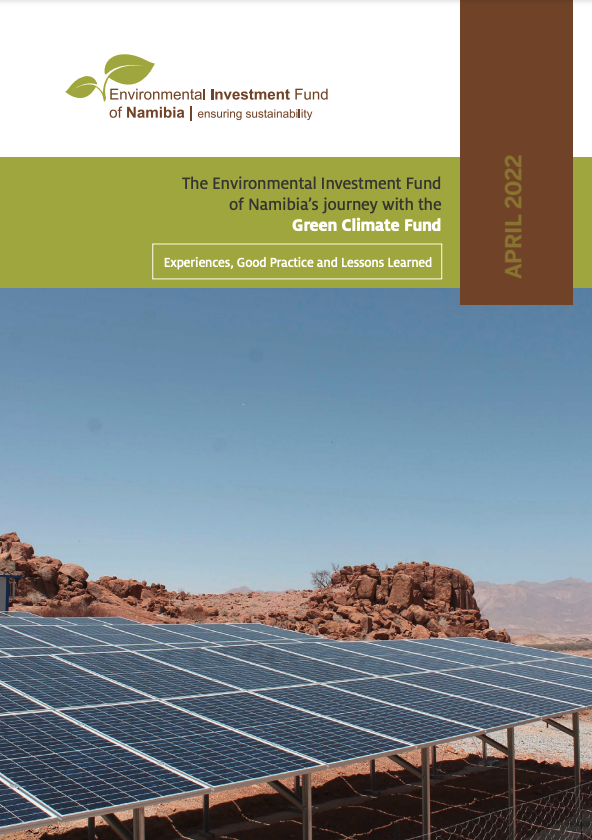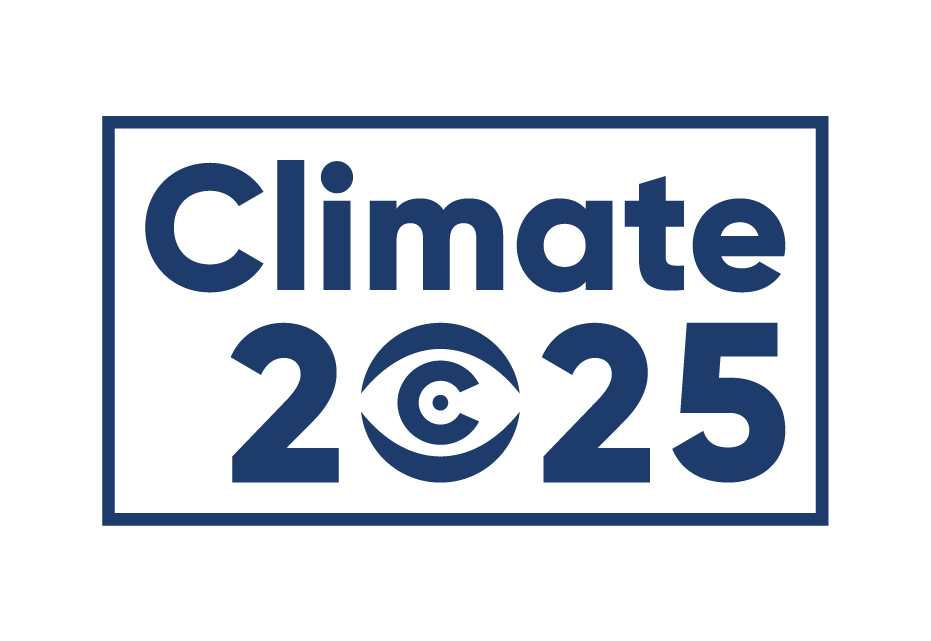A Closer Look at Fiscal Space in Climate Vulnerable Developing Countries

Whether or to what degree climate-vulnerable developing countries have fiscal space is a key question confronting the international public finance community today. A new technical paper by Toby Melissa C. Monsod, Mary Anne Majadillas and Maria Socorro Gochoco-Bautista for the Task Force on Climate, Development and the International Monetary Fund studies the availability of fiscal space among a sample […]
Climate Vulnerable Economies Loss Report

Key findings of the June 2022 V20 report on economic loss and damage: Climate change has eliminated one fifth of the wealth of the V20 over the last two decades: initial evidence shows that the V20 would have been 20% wealthier today had it not been for climate change and the losses it incurred for […]
Petersberg Climate Dialogue Statement Delivered by Sara Jane Ahmed, Climate Breakthrough Awardee 2021

Petersberg Climate Dialogue 2022 Session 3: Deep Dive “Adaptation & Loss and Damage” (Weltsaal) July 18, 2:30 pm Berlin time Delivered by Sara Jane Ahmed Climate Breakthrough Awardee 2021 Covid, debt, and the prevailing fuel and food crisis driven by the current war are triple hammer blows. Most vulnerable nations not only take […]
The Environmental Investment Fund of Namibia’s journey with the Green Climate Fund

The Environmental Investment Fund of Namibia (EIF) was accredited to access the Green Climate Fund (GCF) in 2016, and has to date seen the approval of four GCF projects, for a total funding amount of nearly USD 40 million. The EIF was one of the first institutions to access the GCF through the “direct access” […]
A Closer Look at Fiscal Space in Climate Vulnerable Developing Countries

Whether or to what degree climate-vulnerable developing countries have fiscal space is a key question confronting the international public finance community today. A new technical paper by Toby Melissa C. Monsod, Mary Anne Majadillas and Maria Socorro Gochoco-Bautista for the Task Force on Climate, Development and the International Monetary Fund studies the availability of fiscal […]
Program Assistant Internship
Role: Program Assistant (Internship) Start Date: Immediate Hiring Duration: 3-months with flexibility/possibility of extension Application Deadline: Open until filled Location: Remote Occupation Rate: 80% (4 days per week, 8 hours per day) Supervisor Associate Compensation/Benefits: US dollars (USD) to be determined per month Organizational Context Financial Futures Center The Financial Futures Center […]
Fiscal Impact Estimates of a Net-Zero Emissions Transition for Major Hydrocarbon Producers in Latin America and the Caribbean

Hydrocarbon producing countries will face important fiscal challenges to reduce greenhouse gas emissions in line with the Paris Agreement on Climate Change and then move to a net-zero emission (NZE) scenario. Efforts taken to reduce these emissions will lower demand for fossil fuels globally and result in falling production volumes and decreased prices. As a […]
Macroeconomic Consequences of Climate Change in Africa and Policy Implications

Prior to the pandemic, Africa had begun to experience a slowdown in economic growth, and COVID-19 has only worsened these adverse trends. What is more, the pandemic also struck at a time when Africa was making slow and uneven progress towards achieving the 2030 United Nations Sustainable Development Goals (SDGs), with the continent already under […]
The Fiscal Implications of Climate Transitions: The Importance of IMF Surveillance

The fiscal implications of managing climate transitions are significant, especially considering fossil fuels are a major source of revenue for many countries. Furthermore, the revenue raised from carbon pricing, which has proven to be politically difficult to enact, may be insufficient to finance or incentivize the low-carbon transition. This means the International Monetary Fund (IMF), […]
India’s Energy and Fiscal Transition

At the United Nations Climate Change Conference in Glasgow, India’s Prime Minister Narendra Modi announced India will meet a target of net-zero emissions by 2070. Now, over the next few decades, India faces a significant energy transition, as fossil fuels account for a significant share of Indian government revenues. Currently, the Indian government, both the […]


